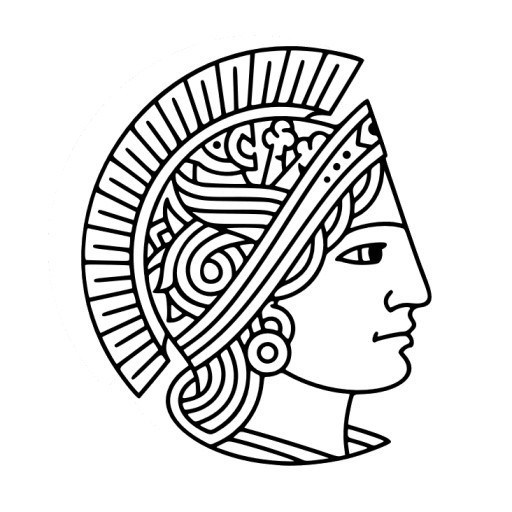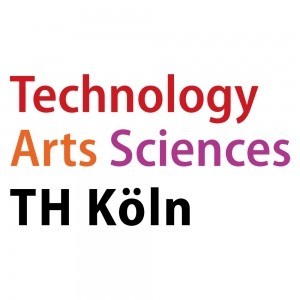Photos of university / #soasuni
The MA in Music and Development at SOAS University of London is a unique interdisciplinary programme that explores the complex relationships between music, society, and development processes across the globe. Designed for students interested in understanding how music functions as a tool for social change, cultural identity, and community empowerment, this programme provides in-depth theoretical knowledge combined with practical insights into the socio-cultural dimensions of music in diverse contexts. Throughout the course, students will examine a wide range of musical traditions and practices, considering their roles within local and global development initiatives. The programme encourages critical analysis of issues such as music’s capacity to foster cultural rights, promote social cohesion, and support economic development. Students will engage with case studies from different regions, including Africa, Asia, Latin America, and the Middle East, gaining a nuanced understanding of how music intersects with politics, religion, identity, and globalization. Moreover, the programme emphasizes hands-on research skills, with opportunities for fieldwork, ethnographic studies, and collaborative projects with communities and organizations involved in music development initiatives. Graduates of this programme will be equipped to work in cultural policy, community development, international NGOs, cultural preservation, and academic research. The curriculum benefits from SOAS’s diverse faculty expertise in ethnomusicology, development studies, anthropology, and related disciplines. Overall, the MA in Music and Development offers an academically rigorous yet practically relevant education for those passionate about the transformative power of music and its role in fostering sustainable social change around the world.
The Music and Development programme at SOAS University of London offers students a comprehensive exploration of the intersection between musical practices and development issues worldwide. This innovative programme combines rigorous academic study with practical engagement, allowing students to critically examine how musical expression influences social change, cultural identity, and community development in diverse contexts. Throughout the course, students will analyze case studies from various regions, including Africa, Asia, and the Caribbean, to understand how music functions as a tool for empowerment, resilience, and social cohesion.
The curriculum covers a broad range of topics such as ethnomusicology, development studies, cultural policy, and environmental sustainability related to musical practices. Students will learn about the role of music in supporting human rights, fostering intercultural dialogue, and promoting sustainable development goals (SDGs). The programme emphasizes interdisciplinary approaches, encouraging students to draw on theories from anthropology, sociology, political science, and musicology. Practical components include fieldwork opportunities, where students can engage directly with local communities, and workshops designed to develop skills in ethnographic research, participatory methods, and music performance.
Graduates of the programme will be equipped with the analytical tools needed to contribute to policy-making, development projects, and cultural preservation initiatives. They will also be prepared for careers in international development organizations, NGOs, cultural institutions, and academia. The programme fosters a global perspective, highlighting the importance of culturally sensitive approaches to development through the lens of musical expression. With expert faculty members from diverse backgrounds, students benefit from a supportive academic environment that encourages critical thinking, innovative research, and active engagement with pressing development issues through the arts.
The Music and Development programme at SOAS is ideal for students passionate about music, social justice, and sustainable development, seeking to make meaningful contributions to society while deepening their understanding of global cultural practices. Whether you are a musician, researcher, or development professional, this programme provides the knowledge, skills, and networks necessary to influence positive change through the powerful medium of music. Join us to explore the dynamic ways that music shapes, reflects, and advances human development worldwide.
To successfully complete the BA Music and Development program at SOAS University of London, students are required to fulfill a combination of core courses, electives, and practical components, which collectively aim to provide a comprehensive understanding of the relationship between music and social development across various cultural contexts. The program typically consists of modules designed to develop critical analysis skills, contextual knowledge, and practical engagement with music in development sectors. Core modules often include "Music and Society," which explores the social functions and meanings of music in different cultural settings; "Understanding Development," which covers theories, policies, and practices related to social and economic development; and "Research Methods in Music and Development," providing students with the necessary tools for conducting qualitative and quantitative research in this field. Students are also expected to undertake a significant research project or dissertation in their final year, requiring independent investigation into a relevant topic such as community music initiatives, the role of music in peacebuilding, or the impact of development programs on musical practices. In addition to compulsory modules, students select from a range of electives that may include topics like ethnomusicology, music therapy in development contexts, global popular music, and cultural policy. Practical components such as fieldwork, internships, or participation in community music projects are often encouraged or required to enhance experiential learning. Assessment methods encompass essays, oral presentations, project reports, and examinations, designed to evaluate students' theoretical knowledge, practical skills, and research capabilities. The program emphasizes interdisciplinary approaches and fosters critical reflection on how music can serve as a tool for development, social cohesion, and cultural expression. To graduate, students must accumulate a specified number of credits across the modules, demonstrate proficiency in research and analysis, and submit a final dissertation that addresses a relevant issue within music and development. Overall, the program aims to prepare graduates for careers in nonprofit organizations, cultural policy, community development, research, and academia, equipping them with both theoretical insights and practical skills to engage with music's transformative potential globally.
The financing options for the Music and Development programme at SOAS University of London are designed to support students through various funding opportunities. Students are encouraged to explore a range of financial aid options, including scholarships, bursaries, and loans. SOAS offers a number of scholarships specifically for students enrolled in postgraduate programmes, which may include merit-based awards, need-based support, and country-specific funding. Prospective students are advised to regularly check the SOAS Scholarships website for up-to-date information on available bursaries and deadlines. Additionally, students can consider applying for external funding sources such as government-sponsored loans, international scholarships, and responsible charities that support music and development studies. To finance their studies, students might also explore personal savings or family contributions. The university provides guidance and support through its financial aid office to help students identify suitable funding opportunities and complete the necessary application processes. Moreover, there are part-time work options available on-campus, which can supplement students’ income while studying. It is important for students to plan their finances ahead of time, taking into account tuition fees, living expenses in London, and other costs associated with studying abroad. International students should ensure they review visa requirements related to funding and work regulations in the UK. Students are also encouraged to consider loans as a means of financing their education, with some postgraduate loans available from the UK government for eligible students. Overall, the university aims to make Music and Development accessible through comprehensive financial support options, ensuring students can focus on their academic and professional development without undue financial pressure.
The Music and Development programme at SOAS University of London offers students a unique interdisciplinary approach to understanding the relationship between music and social development across different cultures and societies. The programme is designed to explore how music functions as a tool for social change, cultural expression, community building, and identity formation within various socio-economic contexts. Students will analyze the role of music in development initiatives and how music can contribute to positive societal transformations, particularly in regions affected by economic disparities, conflict, and cultural shifts.
The curriculum combines ethnomusicology, development studies, anthropology, and cultural studies, providing students with a comprehensive understanding of both the theoretical frameworks and practical applications of music in development contexts. Courses may cover topics such as the sociology of music, music as a development resource, global music industries, cultural policy, and the impact of globalization on local musical traditions. Students are encouraged to critically examine case studies from different parts of the world, including Africa, Asia, Latin America, and the Middle East, to understand the diverse ways music interacts with social and economic development.
Practical components of the programme often include research projects, ethnographic fieldwork, and collaborative group work that foster hands-on experience. Students may have opportunities to engage with local communities, artists, NGOs, and policymakers to gain insights into how music can serve as an agent for development and social change. The programme also emphasizes critical thinking about issues such as cultural imperialism, intellectual property rights related to traditional music, and the ethical considerations involved in development work.
Graduates of the Music and Development programme are well-equipped for careers in cultural policy, development agencies, NGOs, international organizations, research institutions, and the creative industries. They develop skills in ethnographic research, policy analysis, cultural management, and advocacy, with a deep appreciation for the ways music can influence social development processes. The interdisciplinary nature of the programme fosters critical and innovative thinking, preparing students to address global challenges through culturally informed strategies and practices in the fields of music and development.








